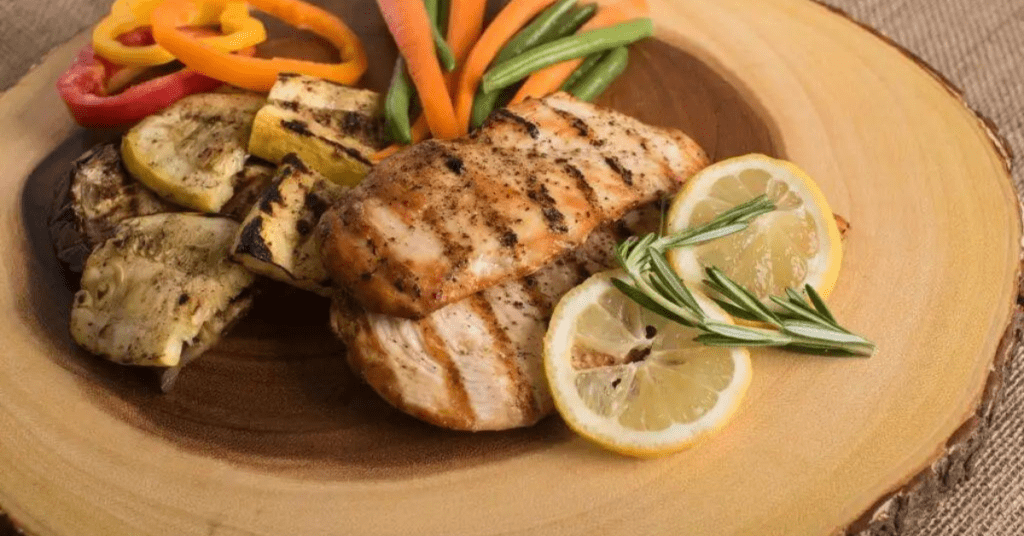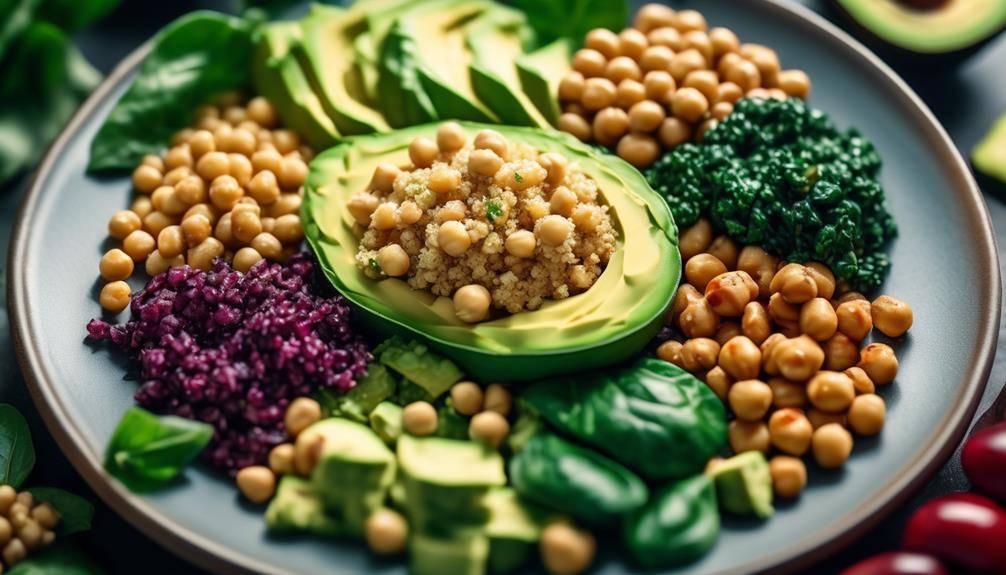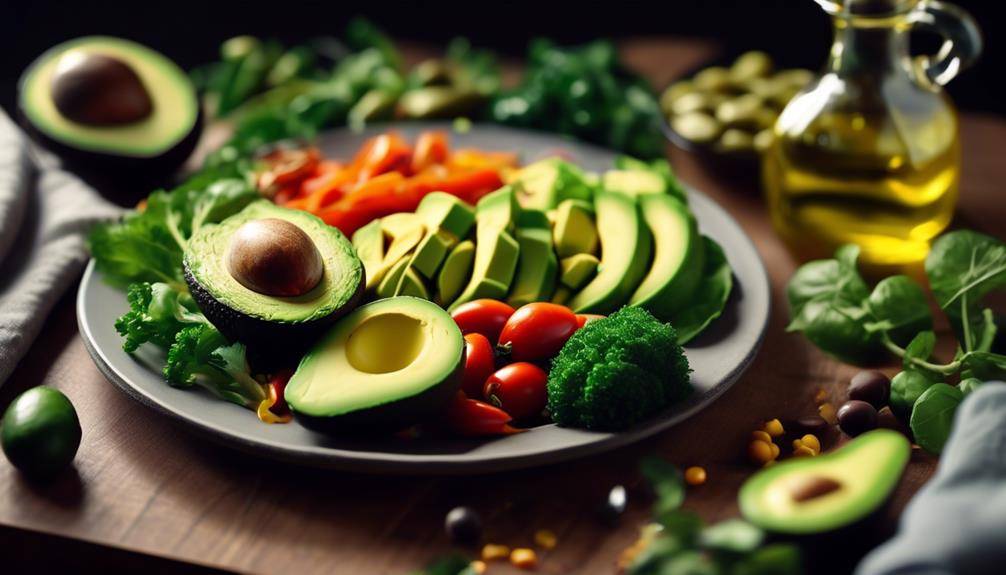How To: Diet-Friendly Grilling Techniques

Diet-Friendly Grilling; So you want to grill and stay on track with your diet? Well, look no further! We’ve got some diet-friendly grilling techniques that will make your taste buds dance without adding unwanted pounds. Say goodbye to greasy burgers and hello to lean cuts of meat.
Marinating your meat not only adds flavor but also helps to keep it tender. And don’t forget the veggies! Grilling them brings out their natural sweetness and adds a healthy twist to your meal. Swap out unhealthy oils for their healthier counterparts and say no to sugary sauces. Instead, season your food with herbs and spices for a burst of flavor. With these diet-friendly grilling techniques, you can enjoy delicious meals without compromising your health goals.
Choose Lean Cuts of Meat
When grilling, opt for lean cuts of meat to reduce calories and fat intake. Choosing lean cuts of meat is an important aspect of diet-friendly grilling. Lean cuts have less fat content, which helps to reduce the overall calorie intake. When it comes to grilling methods, it is essential to understand that different cuts of meat require different cooking temperatures to achieve optimal taste and texture.
Grilling is a cooking method that involves the direct application of heat to the meat’s surface. This high heat can cause fat to melt and drip into the grill, leading to flare-ups and the formation of harmful chemicals. By choosing lean cuts of meat, you can minimize the amount of fat that is rendered during grilling, reducing the risk of flare-ups and potentially harmful compounds.
When selecting lean cuts of meat, look for options such as skinless chicken breasts, turkey cutlets, pork tenderloin, and lean cuts of beef, like sirloin or tenderloin. These cuts tend to have less marbling, which means they contain less fat. Additionally, lean cuts of meat can be marinated to add flavor and tenderize the meat, without adding excessive calories or fat.
In terms of cooking temperatures, it is crucial to follow guidelines to ensure that the meat is cooked safely and remains tender and juicy. Use a meat thermometer to accurately measure the internal temperature of the meat. For chicken and turkey, the FDA recommends a minimum internal temperature of 165°F (74°C). For pork, the recommended internal temperature is 145°F (63°C), and for beef, it varies depending on the desired level of doneness.
Marinate for Flavor and Tenderness
To enhance the taste of your grilled meats and achieve juiciness, marinating is a key technique. Marinades not only add flavor but also help tenderize the meat, making it more enjoyable to eat. By allowing the meat to soak in a mixture of herbs, spices, acids, and oils, you can infuse it with delicious flavors and ensure a moist and tender result on the grill.
Enhancing Taste With Marinades
To enhance the taste of your grilled dishes and achieve optimal tenderness, marinating is a key technique to incorporate into your diet-friendly grilling routine. Marinades not only add flavor but also help tenderize the meat, making it juicier and more enjoyable to eat. When looking for sugar-free marinades, opt for options that use natural sweeteners like honey or maple syrup instead.
You can also experiment with adding herbs, spices, and citrus juices to enhance the flavor without adding unnecessary calories. Additionally, don’t limit yourself to marinating just meat. Grilling fruit can also benefit from being marinated, as it adds depth and complexity to their natural sweetness. So, next time you fire up the grill, remember to marinate your ingredients for a tastier and more tender outcome.
Achieving Juicy Grilled Meats
For juicier and more tender grilled meats, marinating is a technique you’ll want to incorporate into your diet-friendly grilling routine. Marinating not only adds flavor, but also helps to break down the proteins in the meat, making it more tender. To achieve smoky flavors, consider using marinades that contain ingredients like smoked paprika, chipotle peppers, or liquid smoke. These ingredients will give your grilled meats a delicious smoky taste without the need for excess fat or calories.
When it comes to grilling seafood options, marinating is equally important. Seafood tends to be delicate and can easily dry out on the grill. Marinating seafood in a mixture of citrus juices, herbs, and spices will help to keep it moist and flavorful. So, don’t forget to marinate your meats and seafood for juicy and delicious results on the grill.
Opt for Grilling Vegetables
You can achieve a diet-friendly grilling technique by choosing to grill vegetables. Grilling vegetables not only adds a smoky flavor but also retains their nutrients, making them a great option for those watching their calorie intake. When it comes to grilling vegetables, there are several techniques you can use to enhance their taste and texture.
Firstly, marinating vegetables before grilling can add flavor and prevent them from drying out. A simple marinade of olive oil, lemon juice, garlic, and herbs can work wonders. Let the vegetables marinate for at least 30 minutes before grilling to allow the flavors to penetrate.
Secondly, using skewers or grilling baskets can help prevent smaller vegetables from falling through the grates. This method is particularly useful for grilling cherry tomatoes, asparagus spears, or sliced zucchini.
Another tip is to pre-cook certain vegetables before grilling. For example, parboiling potatoes or sweet potatoes can help them cook evenly and become tender on the inside while developing a crispy exterior on the grill.
Lastly, consider grilling a variety of vegetables to create a colorful and nutritious medley. Bell peppers, eggplant, mushrooms, and onions all grill well and can be combined to make a delicious and satisfying vegetarian kebab.
Use Healthy Cooking Oils
Choose healthy cooking oils to enhance the flavor and nutritional value of your grilled foods. When it comes to grilling, using the right cooking oil can make a significant difference in both taste and health. Opting for healthy grilling alternatives and using natural oils can provide numerous benefits.
One of the main benefits of using natural oils for grilling is their high smoke point. Oils with a high smoke point, such as avocado oil, coconut oil, and grapeseed oil, can withstand high temperatures without breaking down or producing harmful compounds. This means that your grilled foods will be cooked evenly and without any unpleasant burnt flavors.
In addition to their high smoke point, natural oils also offer nutritional advantages. For example, olive oil is rich in monounsaturated fats, which can help reduce bad cholesterol levels and lower the risk of heart disease. It also contains antioxidants that have been linked to various health benefits, including reducing inflammation and promoting brain health.
Another healthy grilling alternative is sesame oil, which has a distinctive nutty flavor. It contains sesamol, a compound that has been shown to have antioxidant and anti-inflammatory properties. Sesame oil is also a good source of vitamin E, which is essential for maintaining healthy skin and supporting the immune system.
When choosing cooking oils for grilling, it’s important to opt for high-quality, cold-pressed oils that are free from chemicals and additives. These natural oils not only enhance the flavor of your grilled foods but also provide valuable nutrients and health benefits. So, next time you fire up the grill, consider using healthy cooking oils to make your meal both delicious and nutritious.
Cut Back on Added Sugars and Sauces
When it comes to grilling, cutting back on added sugars and sauces is key to maintaining a diet-friendly approach. Look for sugar-free grilling options to avoid unnecessary calories and keep your blood sugar levels in check. Additionally, try using healthier sauce alternatives or flavorful marinades that don’t rely on sugar for taste. By making these small adjustments, you can enjoy delicious grilled meals without sacrificing your health goals.
Sugar-Free Grilling Options
Opt for marinades and rubs that are free of added sugars and sauces to reduce your sugar intake while grilling. When grilling, it’s important to be mindful of your sugar consumption, especially if you’re following a low-carb or sugar-free diet. Fortunately, there are plenty of sugar-free grilling options and low-carb grilling ideas that can still pack a flavorful punch.
Instead of relying on sugary sauces and marinades, consider using herbs, spices, and other natural flavor enhancers to add depth to your grilled dishes. For example, you can try a dry rub made with a combination of spices like paprika, garlic powder, onion powder, and black pepper. Another option is to marinate your meats and vegetables in a mixture of vinegar, olive oil, and herbs for a tangy and delicious flavor. By choosing sugar-free options, you can enjoy the taste of grilled food without compromising your dietary goals.
Healthier Sauce Alternatives
To reduce your sugar intake while grilling, consider using healthier sauce alternatives that cut back on added sugars and sauces. Instead of traditional high-sugar barbecue sauces, opt for sugar substitutes like Stevia or monk fruit sweetener. These alternatives provide the sweetness you crave without the excess calories and carbohydrates. Another option is to use low-calorie dressings as a sauce alternative. Look for dressings that are specifically labeled as low in sugar or sugar-free. These dressings often use vinegar or lemon juice as a base, which adds flavor without the added sugars.
Additionally, you can experiment with homemade marinades using ingredients like herbs, spices, and citrus fruits to add flavor to your grilled meats without the need for sugary sauces. By choosing these healthier sauce alternatives, you can enjoy delicious grilled dishes while cutting back on added sugars.
Flavorful Marinades Without Sugar
For flavorful marinades without sugar, try using herbs, spices, and citrus fruits to enhance the taste of your grilled meats and cut back on added sugars and sauces. Not only will this help you reduce your sugar intake, but it will also add a burst of freshness and complexity to your dishes. Here are some sugar substitutes and low carb grilling techniques to try:
- Use fresh herbs like rosemary, thyme, and basil to infuse your marinades with aromatic flavors.
- Experiment with spices such as cumin, paprika, and chili powder to add depth and heat to your marinades.
- Squeeze citrus fruits like lemon, lime, and orange to provide a tangy and zesty kick to your meats.
- Incorporate garlic and ginger for a savory and pungent marinade that pairs well with various proteins.
- Consider using sugar substitutes like stevia or erythritol to add a touch of sweetness without the added sugars.
Season With Herbs and Spices
Enhance your grilled dishes with the flavors of herbs and spices. When it comes to adding taste to your diet-friendly grilling, herbs and spices are a great alternative to high-calorie marinades and sauces. Not only do they add a burst of flavor, but they also bring a variety of health benefits to your grilled meals.
Herbs and spices are rich in antioxidants, vitamins, and minerals that can support your overall well-being. They can also help you reduce sodium intake by adding flavor without the need for excessive salt. For grilling seafood, certain herbs and spices can enhance the natural flavors of the fish while keeping the dish light and healthy.
For a Mediterranean twist, try seasoning your seafood with a blend of dried oregano, thyme, and lemon zest. This combination adds a refreshing citrusy taste that pairs perfectly with fish. Another flavorful option is to use a mix of paprika, garlic powder, and cayenne pepper for a smoky and slightly spicy kick.
If you prefer a milder flavor, opt for fresh herbs like parsley, dill, or basil. Simply chop them up and sprinkle them on your grilled seafood before serving. The fresh herbs will bring a burst of freshness and vibrant color to your dish.
Experiment with different herb and spice combinations to find your favorite flavors. Remember to use them sparingly, as a little goes a long way. By using herbs and spices to season your grilled dishes, you can create delicious and diet-friendly meals that are bursting with flavor.
Control Portion Sizes
When grilling for a diet-friendly meal, be mindful of your portion sizes. Portion control plays a crucial role in maintaining a healthy diet and achieving your weight loss goals. By following these grilling techniques, you can ensure that you’re not overindulging while still enjoying delicious grilled foods.
Here are some tips for controlling your portion sizes when grilling:
- Use smaller plates: Opt for smaller plates and bowls to help control the amount of food you serve yourself. Research suggests that people tend to eat more when they are served larger portions, so using smaller plates can help trick your brain into feeling satisfied with less food.
- Measure your ingredients: Use measuring cups or a kitchen scale to accurately portion out your ingredients before grilling. This will help you avoid adding excess calories and ensure that you’re consuming the appropriate portions.
- Fill half your plate with vegetables: Vegetables are low in calories and high in fiber, making them an excellent choice for filling up your plate. By filling half of your plate with grilled vegetables, you can naturally limit the amount of higher-calorie foods you consume.
- Choose lean proteins: Opt for lean cuts of meat, such as chicken breast or turkey burgers, when grilling. These options are lower in fat and calories compared to fattier cuts of meat, helping you control your calorie intake.
- Practice mindful eating: Pay attention to your body’s hunger and fullness cues while grilling and eating. Take your time to savor each bite, and stop eating when you start to feel satisfied. This can help prevent overeating and promote better portion control.
Practice Safe Grilling Techniques
To practice safe grilling techniques, ensure you handle food properly and maintain a clean grilling environment. Grilling safety is essential to prevent foodborne illnesses and ensure that your outdoor cooking experience remains enjoyable and healthy.
First and foremost, it’s crucial to handle food with care to prevent cross-contamination. Keep raw meats, poultry, and seafood separate from other foods to avoid spreading bacteria. Use separate cutting boards, utensils, and plates for raw and cooked foods. Remember to wash your hands thoroughly before and after handling raw meat to minimize the risk of contamination.
Maintaining a clean grilling environment is equally important. Start by cleaning your grill grates before and after each use to remove any buildup or residue. This not only helps prevent flare-ups but also ensures that your food cooks evenly. Additionally, regularly clean your grill’s exterior to remove any grease or dirt that may accumulate over time.
When grilling, it’s vital to cook food to the right internal temperature to kill any harmful bacteria. Use a meat thermometer to check the doneness of meats, poultry, and seafood. The USDA recommends the following safe internal temperatures: 145°F for steaks, roasts, and fish; 160°F for ground meats; and 165°F for poultry.
Lastly, be mindful of safe grilling practices to avoid accidents and injuries. Keep a fire extinguisher nearby, especially when using charcoal grills. Never leave a lit grill unattended, and make sure to extinguish the flames completely after cooking. Keep children and pets away from the grill area to prevent burns or other accidents.
Diet-Friendly Grilling; Frequently Asked Questions
Can I Use Any Type of Meat for Grilling or Are There Specific Cuts That Are More Diet-Friendly?
You can use any type of meat for grilling, but there are specific cuts that are more diet-friendly. Lean cuts like chicken breast, turkey, and fish are lower in fat and calories, making them a healthier choice for grilling.
What Are Some Healthy Alternatives to Traditional Marinades That Are Lower in Calories and Sodium?
Looking for healthy marinade alternatives? Try using fresh herbs, citrus juices, or vinegar-based dressings. These options are lower in calories and sodium compared to traditional marinades, making them perfect for your low-calorie grilling techniques.
Are There Any Vegetables That Don’t Work Well on the Grill and Should Be Avoided?
Avoid grilling delicate vegetables like leafy greens, cucumbers, and zucchini, as they tend to become soggy. Instead, try grilling sturdy vegetables like bell peppers, onions, and eggplants, which hold up well on the grill.
What Are Some Healthy Cooking Oils That Can Be Used for Grilling?
To grill healthily, start by choosing the right cooking oil. Opt for healthy options like olive oil, avocado oil, or coconut oil. These oils can withstand high heat and add flavor to your lean meats.
How Can I Add Flavor to Grilled Foods Without Relying on Added Sugars and Sauces?
To enhance the flavor of grilled foods without using sugar or sauces, try creative seasoning techniques. Use herbs, spices, and citrus zest for a burst of flavor. Experiment with different marinades using low-calorie ingredients like vinegar, yogurt, or mustard.
Conclusion
In conclusion, incorporating diet-friendly grilling techniques can help you enjoy delicious and healthy meals. Choosing lean cuts of meat, marinating for flavor and tenderness, grilling vegetables, using healthy cooking oils, cutting back on added sugars and sauces, and seasoning with herbs and spices are all effective strategies. Additionally, controlling portion sizes and practicing safe grilling techniques will contribute to a well-balanced and satisfying diet. By following these tips, you can continue to enjoy the benefits of grilling while maintaining a healthy lifestyle.








